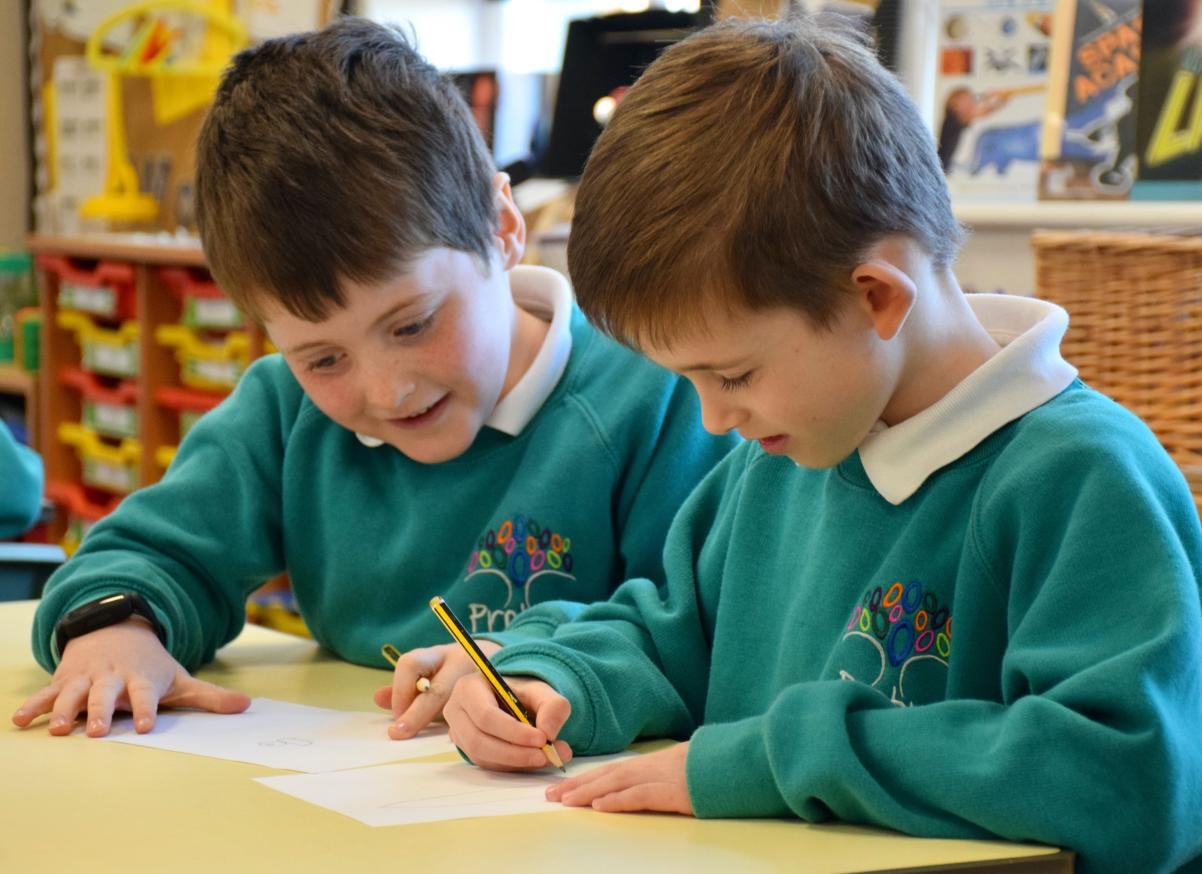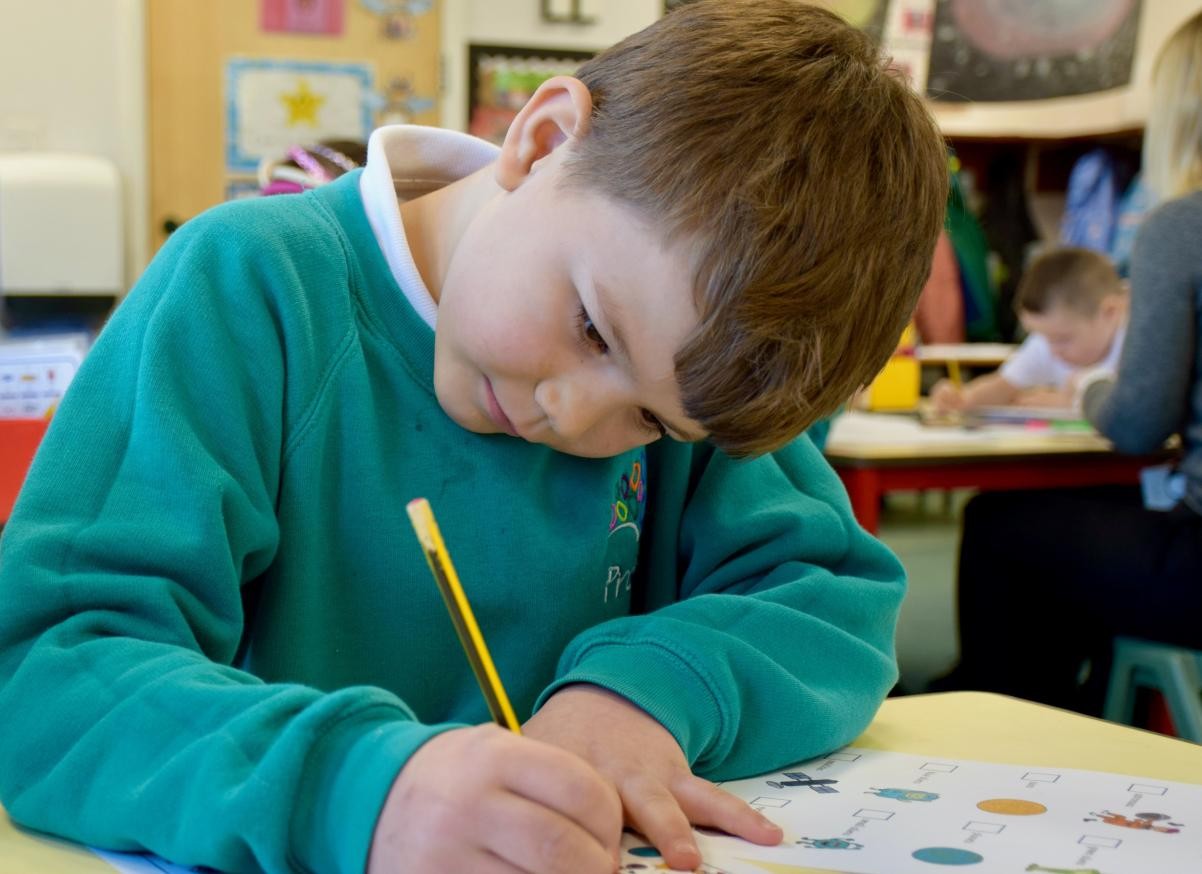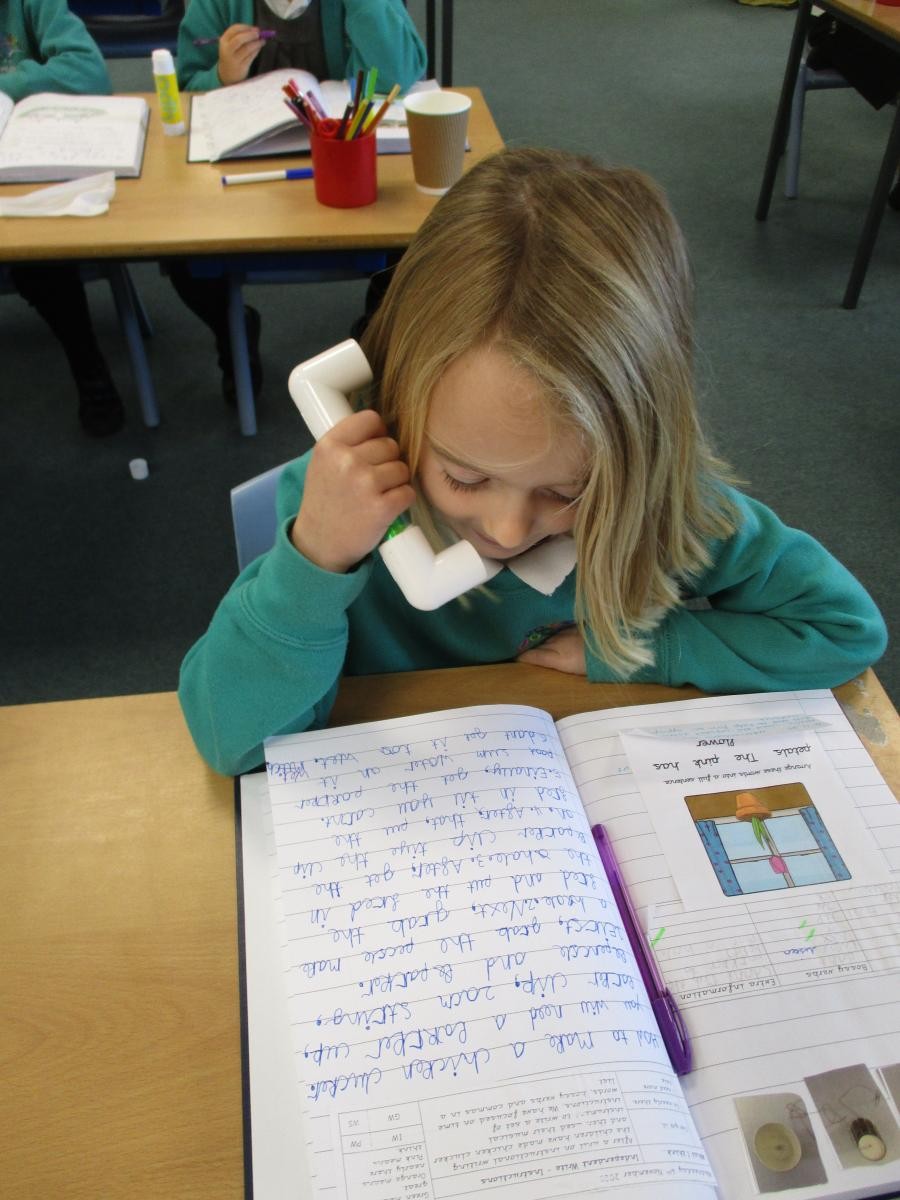Literacy - Our Curriculum
The curriculum content follows the national curriculum for England for a sequenced model.
Each unit has a large emphasis on developing vocabulary and accessing high quality texts. Reading development is embedded throughout the programmes and commences with a high quality phonics programme (Little Wandle) and Wellcom language programme.
Access to the full offer is of paramount importance for all pupils. The experienced SENDCo advises on adaptations for pupils with needs and pupils have individual support plans to enable inclusion.
English ~ Writing
At Probus our aim is that every child enjoys the writing process. By the end of Year 6, the children should understand that as authors, they are in control and can use subtle edits to have a greater impact on their audience. As well as this, they can write in a manner which is clear, grammatically correct and they can show awareness of their audience (ready for their next journey to secondary school).
As writing is a key life skill, we promote daily writing opportunities so that children can successfully write for a range of audiences and purposes.
At the beginning of each year, the children go back to basics and use Grammarsaurus’ Place Value for Punctuation to increase their knowledge of grammar, punctuation and sentence structure before further writing. This has been carefully mapped out for coverage. Text types are balanced across the yearly writing programme and progressive over the whole school programme with a clear progression of grammar.
How we Teach Writing
In the Early years we focus on developing mark making skills, pencil grip and letter formation using the Little Wandle scheme. Transcription of phonically decodable sentences begins in reception and develops across key stage one. The “grow the code” resources are used throughout the school to assist independence in writing for spellings, alongside word banks, dictionaries and other writing aids.
At Probus the literacy lesson journey has a specific structure
1) Diagnostic task (preferably completed before the beginning of the unit so the teacher can adapt the lessons to support their class.)
2) Text deconstruction. Immerse the children in the purpose and text type. Lots of opportunities to discuss
3) Contextualised construction – Children to imitate/innovate specific features that are required: specific vocabulary (identify words from the year group spelling mats), grammar and punctuation devices.
4) Independent writing – Children to be given another task where they can use the success criteria
5) Editing – Children are always encouraged to edit their ideas
Our children are encouraged to edit and redraft their work, using a range of tools to support them.
Assessment is both formative and summative, with children being given a combination of written and verbal feedback to inform their improvements and next steps. Teachers will assess children's writing against the objectives of the National Curriculum and use these to inform their planning for each written topic.
Literacy can't be taught in a vacuum: the children need a variety of texts and contexts to work on and these are drawn from the topic or other curriculum area such as geography or science.
Students have more opportunities for interleaved and spaced retrieval practice in cross curricular learning =When retrieving knowledge across subjects and across year groups, it becomes spaced and therefore more powerful. When retrieving have opportunities for interleaving, where students are required to more meaningfully choose which knowledge or part of their understanding that they need to deploy (Agarwal and Bain, 2019).
Spelling
Spelling is taught discretely throughout the whole school, and is reinforced in all subjects too. In Foundation Stage and Key Stage One, the children’s spelling lists follow their phonic knowledge to reinforce and embed this. Moving on from Little Wandle phonics, children follow the Jane Constantine programme which allows the children to explore words – morphology. Children become independent learners – tracking parts of the word that they find tricky before thinking of ways to help them remember.
Grammar
We teach Grammar in a variety of ways. In the Autumn term each year group commences with the Place value for grammar element of the Grammarsaurus programme which ensures consistency of approach and a revisiting of the basics in preparation for compositional explorations. Each unit for writing has specific grammar focus which is progressive through out the curriculum.
Handwriting
Mark making and Nursery
Handwriting is part of our daily lives. Time devoted to the teaching and learning of letter formation in the early years is prioritised. We make sure that our children have lots of opportunities to develop their core strength, so supporting the development of gross, then fine, motor skills. The principal aim is that handwriting becomes an automatic process, which frees pupils to focus on the content of their writing.
Our handwriting begins with using Little Wandle formations before we demonstrate joins. Line guides are used to help children with their sizing.
English - Oracy
High-quality classroom talk is essential to pupils’ thinking and learning. It is also linked to improvements in reading and writing, and overall attainment (National Literacy Trust).
At Probus we aim to provide our children with the ability to articulate ideas, develop understanding and engage with others through spoken language. In school, oracy is a powerful tool for learning; by teaching our children to become more effective speakers and listeners we empower them to better understand themselves, each other and the world around them. These oracy opportunities are planned, designed, modelled, scaffolded and structured to enable our children to learn the skills needed to talk and listen effectively.



